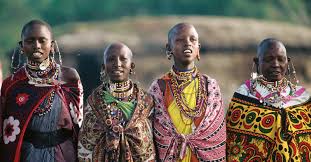Africa is a continent renowned for its remarkable diversity, both in terms of its people and its cultures. Home to over 1.3 billion people,
Africa encompasses a vast range of ethnic groups, languages, traditions, and histories. This rich tapestry contributes to the continent’s unique and vibrant character.
Read also: https://www.youtube.com/watch?v=B7vcrCmOfD8
Ethnic Diversity
Africa is incredibly ethnically diverse, with thousands of ethnic groups spread across its 54 countries. Some of the largest and
most well-known ethnic groups include:
Hausa: Predominantly found in Nigeria and Niger, the Hausa are one of the largest ethnic groups in Africa. They are known
for their rich culture, traditional dress, and vibrant markets.
Yoruba: Also primarily located in Nigeria, the Yoruba people have a significant presence in Benin and Togo. They are known
for their elaborate religious practices, art, and music.
Zulu: One of the most well-known ethnic groups in South Africa, the Zulu have a rich history and are known for their warrior
traditions and intricate beadwork.
Maasai: The Maasai people of Kenya and Tanzania are famous for their distinctive customs, dress, and residence near many
of Africa’s greatest wildlife reserves.
Linguistic Diversity
Africa is a linguistic mosaic, with an estimated 1,500 to 2,000 languages spoken across the continent. Some of the major
language families include:
Afroasiatic: This family includes languages like Arabic, Amharic, and Somali. It is primarily spoken in North Africa and
parts of the Horn of Africa.
Nilo-Saharan: Languages in this family are spoken in central and northeastern Africa. Examples include Kanuri and Dinka.
Niger-Congo: This is the largest language family in Africa, encompassing languages such as Swahili, Yoruba, and Zulu.
Khoisan: Known for their unique click sounds, Khoisan languages are spoken by some of the indigenous people of Southern Africa.
Cultural Practices
The cultural practices of African people are as varied as the continent itself.
Music and Dance: Music and dance are integral to African cultures. Drumming, singing, and dancing are often used in rituals, celebrations, and storytelling.
Art and Craft: African art includes a variety of forms such as sculpture, beadwork, textiles, and pottery. Each ethnic group
has its unique styles and techniques.
Cuisine: African cuisine varies greatly from one region to another. Staples like maize, millet, and cassava are common, but
each region has its signature dishes, such as Jollof rice in West Africa or Injera in Ethiopia.
Historical Contributions
African people have made significant contributions to global history and culture. Ancient civilizations such as Egypt, Nubia,
and Carthage have left lasting legacies in fields like architecture, writing, and trade. More recently, individuals like Nelson Mandela, Wangari Maathai, and Chinua Achebe have played pivotal roles in advocating for justice, environmental sustainability, and literary excellence.
Challenges and Resilience
Despite its richness, Africa faces numerous challenges, including economic disparities, political instability, and health crises.
However, the resilience and ingenuity of African people continue to drive positive change across the continent. Initiatives in technology, education, and healthcare are increasingly transforming African societies and improving standard of living.
In Conclusion:
The people of Africa represent a vast and varied spectrum of human culture and history. From the bustling markets of Lagos
to the tranquil villages of the Maasai, the diversity of African people is a testament to the continent’s rich heritage and enduring
spirit. As Africa continues to evolve, its people remain at the heart of its story, driving forward with resilience, creativity, and
an unyielding sense of community.
Read Also: https://placesandlifestyle.com/best-fabrics-for-long-haul-road-trip/




